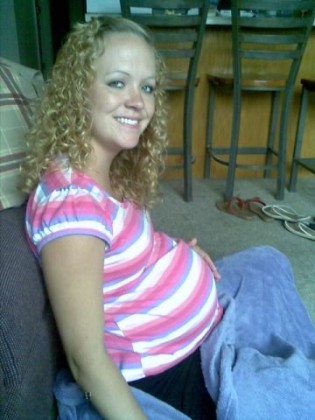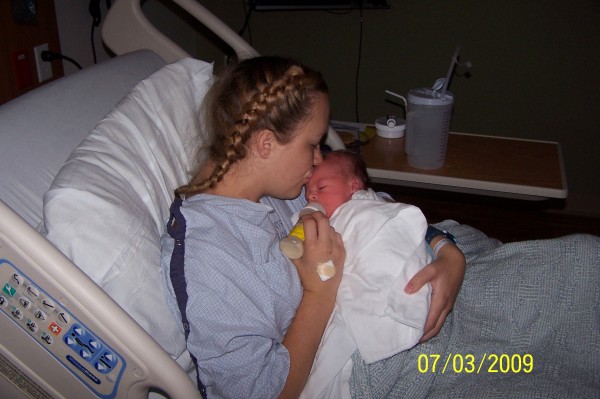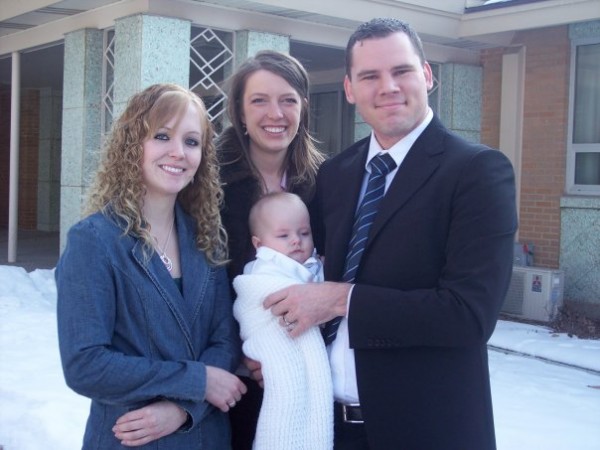5 Things Being a Birth Mother Taught Me About Myself

Before 2009, I was an average 20-year-old college student. I worried about grades, stressed over bills, and went an date every once in a while. There was nothing about me that made me unique, special, or anything that could help someone pick me out of everybody else. I felt empty, but having nothing to compare my emptiness to, I didn’t know I felt that way.
After I found out I was pregnant, the plot of my life caused me nothing but stress. Being single and pregnant was terrifying, not only because of the stress that is growing a child, but because of what would happen when I was done making that child. How could I provide for this baby when I could barely provide for myself? How could I teach him about who he was when I didn’t even know who I was?
I was at a point in my life where I needed to figure out who I was, and since then, I’ve been searching. I’m not completely there, but I’m getting closer. Here are five things I’ve learned about myself since I became a birth mother:
1. My Life Means Something.
There was a long time in my life when I felt I was making no significant dent in the world. It wasn’t until I became a birth mother that I realized how important my existence was–how important it is. Not only that, but adoption has helped me to see how small, seemingly harmless decisions can have eternal effects. I have extended this philosophy into other areas of my life and am beginning to feel like I play an important role in my community, church, and family. My life means something, and I hope I can teach those around me what I have learned over the last five years.

2. I need others.
The heartache is like nothing else. I work with other birth mothers. They are afraid, recovering from childbirth, and expected to go out in the world and “forget.” A mother never forgets. My husband and I have a child who recently turned 1, and his first year of life was beyond difficult. I found myself struggling to bond with him, I had reoccurring nightmares where he was taken away from me, and I was afraid to allow others to hold him, feed him, rock him to sleep. Needless to say, I was afraid to bond with him. I wasn’t afraid to raise him, but I was afraid to allow anyone else to it for me. Before adoption, I never asked for help. Even while I was pregnant, I didn’t. I’ve been greatly humbled since then, and when I was struggling, I reached out to other birth mothers. I needed them. They told me that they had experienced a lot of the same emotions, some coming from not allowing their husbands to help because the birth father didn’t help. Others told me of heavy depression that followed, not allowing them to exist, let alone parent. I needed them, and hopefully, I can repay the favor to other birth mothers someday.
3. I can’t “get over” it.
Believe it or not, birth mothers are told too many times that they need to “get over” their baby. You need to “move on” because that child “isn’t yours.” The only word that comes to mind is “ouch.” I carried him for the better portion of a year, had months of physical healing and years of emotional healing that have followed. He had 10 perfect fingers and 10 perfect toes. When he was born, the universe stopped, and he was all that mattered. How was I supposed to walk away from signing those papers and never think about him again? “You learn to live with the pain,” I would be told over and over. Each time followed by an obviously rude roll of my eyes. But here I am, five years later, living with the pain. It doesn’t feel as invasive anymore. Adoption is a part of who I am, and I love that.
4. My past is part of my identity–and that’s a good thing.
Dating as birth mother is something I wouldn’t wish on my worst enemy. When men find out you’re a birth mother, there are three reactions. With the first one, they think you will sleep with them that night. The next one gets scared and run away. Lastly, and most rare, they find it amazing that you were able to make that decision. Those are the keepers, ladies! It wasn’t annoying. Rather, it was nice because it weeded out the men who weren’t worth the time. It really made me question how to approach that conversation. When was it appropriate to “come out” as a birth mother? It’s different for everyone, but for me, it’s as simple as talking about anything from my past. Being a birth mother is a big definition of who I am, and if people can’t handle that, they can’t handle me.
5. I really am stronger than I believe.
To most people this goes with out saying. When I’m talking about myself, I don’t see my choice as the “strong” choice or a “selfless” choice. I see it as the necessary choice. My son needed stability, and I couldn’t offer it myself. Experiencing the endless despair and somehow surviving it makes me proud of where I’ve come from. A lot of my time is devoted to helping other birth mothers who recently placed. The pain in their eyes reflects how I felt five years ago. I couldn’t even get out of bed without crying about this loss in my life, let alone talk about it. Now I speak at panels, in private conversations, and documentaries. I talk to him and about him without the uncontrollable tears. While I still have moments of reflection, times in my life where I consider the “what if,” overall, I realize that I have overcome something unimaginable to others. I really am stronger than I believe.




